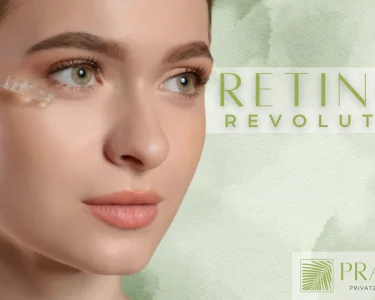Introduction
Acne is an incredibly common skin condition that can be difficult to deal with. For many, it’s more than just a physical nuisance; it’s a mental challenge that can lead to low self-esteem and other issues. If you’re one of the millions of people who struggle with acne, this article is for you. We’ll discuss the different types of acne, treatments available, and tips for preventing future breakouts. With this guide, you will be better equipped to clear up your skin and keep it looking healthy in the future.
What Causes Acne?
There are many factors that can contribute to the development of acne. Genetics play a role, as acne is more common in families where other members have had it. Hormonal changes during puberty, pregnancy, and menopause can also trigger acne breakouts.
Certain medications, such as corticosteroids or lithium, can cause acne flare-ups. And some cosmetic products can irritate the skin and clog pores, leading to breakouts.
Acne occurs when the hair follicles become plugged with oil and dead skin cells. When this happens, bacteria can grow and cause inflammation.
How to Treat Acne
Acne is a skin condition that can be caused by a variety of factors, including hormones, bacteria, and excess oil production. While there is no one-size-fits-all solution for acne, there are some general steps that you can take to help clear up your skin and prevent future breakouts.
Here are some tips on how to treat acne:
1. Cleanse your face twice daily with a gentle cleanser. Avoid scrubbing or rubbing your skin too harshly, as this can irritate the skin and make acne worse.
2. Apply a topical acne treatment daily. Look for an acne treatment that contains benzoyl peroxide or salicylic acid, as these ingredients can help to kill bacteria and dry up excess oil.
3. Be sure to moisturize your skin after cleansing and applying topical treatments. This will help to keep your skin hydrated and prevent it from becoming too dry or irritated.
4. If you wear makeup, be sure to cleanse your face thoroughly before going to bed each night. Remove all traces of makeup, dirt, and oil from your skin so that your pores don’t become clogged overnight.
5. Keep your hands off of your face! Touching your face can transfer bacteria and oils from your hands onto your skin, which can worsen acne breakouts. If you must touch your face during the day (for example, when applying sunscreen), be sure to wash your
The Best Acne-Fighting Products
Acne is a common skin condition that affects people of all ages. While there is no cure for acne, there are many products available that can help to clear up existing breakouts and prevent future ones from occurring.
One of the most important things to look for in an acne-fighting product is salicylic acid. This ingredient helps to exfoliate the skin and unclog pores, which can reduce the number of breakouts that occur. Benzoyl peroxide is another key ingredient to look for, as it kill bacteria that can cause acne.
Some other important things to keep in mind when choosing an acne-fighting product are: make sure it is non-comedogenic so it won’t clog pores; choose one with a light texture so it won’t aggravate your skin; and select a product that contains SPF to protect your skin from the sun’s damaging rays.
There are many different types of acne-fighting products available on the market, so it’s important to find one that works best for your individual skin type. If you have any questions about what product would be best for you, be sure to consult with a dermatologist or other skincare professional.
How to Prevent Future Breakouts
To prevent future breakouts, it is important to keep your skin clean and free of oil. Washing your face twice a day with a mild cleanser can help to remove dirt, oil, and makeup that can clog pores and lead to breakouts. In addition, avoid touching your face throughout the day as this can transfer bacteria from your hands onto your skin. If you must touch your face, make sure to wash your hands first.
It is also important to choose cosmetics and skincare products that are non-comedogenic or oil-free as these are less likely to clog pores and cause breakouts. Avoiding harsh chemicals and abrasive scrubs can also help to keep your skin healthy and prevent future breakouts. Gentle cleansing with a soft cloth or cotton pad is all that is needed to remove dirt and oil without irritating the skin.
Finally, be sure to take care of your overall health as this can impact the health of your skin. Eating a balanced diet, getting enough sleep, managing stress levels, and avoiding Smoking can all help to promote clear skin.
Conclusion
Taking the time to understand acne and its causes is key in getting it under control. Following our ultimate guide for clearing up acne and preventing future breakouts will help you get on track to clearer skin. Keep up with your skincare routine, modify your diet as needed, use gentle products, and practice good hygiene habits—this combined effort can make a huge difference in reducing or eliminating acne breakouts altogether. You deserve clear skin that makes you feel confident!




